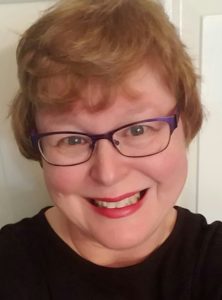
Experience as an advocate for older adults is a characteristic that makes for an essential member of a Patient and Family Advisory Council Committee (PFAC). As a former social worker and educator, Ellen Netting is a vital contributor to the Health Quality Innovation Network’s (HQIN) PFAC. Her professional experience in gerontology helps her support patients to advocate for themselves and their families.
Ellen worked as a gerontological social worker prior to becoming a social work professor. Her career began in East Tennessee where she directed a county office on aging, directed the foster grandparent program and eventually led research and development for the Area Agency on Aging (AAA). After earning her Ph.D. at the University of Chicago, she taught macro social work at Arizona State University for 10 years. Subsequently, Ellen taught at Virginia Commonwealth University (VCU) School of Social Work for 19 years until retiring in 2011.
During her time at VCU, Ellen worked closely with the Department of Gerontology and the Geriatric Education Center at the university. Her community service included chairing the Advisory Council for the Long-Term Care Ombudsman Program, serving on the board of the Alzheimer’s Association, working with the Foster Grandparent Program at Senior Connections and liaising field students in multiple human service agencies.
Upon retiring, a former student invited Ellen to join the HQIN PFAC. “I was one of the first members of the committee and it has been wonderful to watch it grow from a brain-child of HQIN staff to what it is today,” Ellen said. “When I joined the committee, I was newly retired and was certain that I would learn a lot in the process, especially now that I am a Medicare recipient.”
Since joining the PFAC, Ellen has attended meetings, recruited new members, joined training events, provided feedback on patient materials, evaluated applications for an awards program and was even featured in an educational video. She now knows what questions patients and families should ask their providers through the patient education HQIN provides.
“Increased communication comes from knowing what questions to ask,” said Ellen. Recently when her husband had a series of hospitalizations, she knew what to ask his providers because of her experience with the PFAC. “I typed up my questions and took them with us to appointments. The physicians responded very positively to having our questions in front of them. I suspect I have learned more tactics for assuring patient engagement than I thought about before. Folks don’t think they have the right to question doctors’ recommendations, but they do.”
The PFAC empowers members, informs HQIN’s work and gives members a path to give back to their communities, all while fostering increased communication related to health care decisions. “Empowerment has to come from within, and the staff at HQIN helps members have a voice which allows them to become a part of any discussion or interaction. It has simply been a joy to work with the HQIN staff,” Ellen said.
Ellen wanted to continue to make a difference when she retired, and she has been able to do that with the PFAC. The committee offers many pathways for its members to give back to the community by suggesting ways to recruit other members, recommending potential HQIN partners, participating in health fairs and most importantly, by educating others with what they have learned by being part of the committee. “I continue to spread the word to my colleagues and friends. The PFAC is such a nice opportunity to get involved in patient engagement in health care.”
